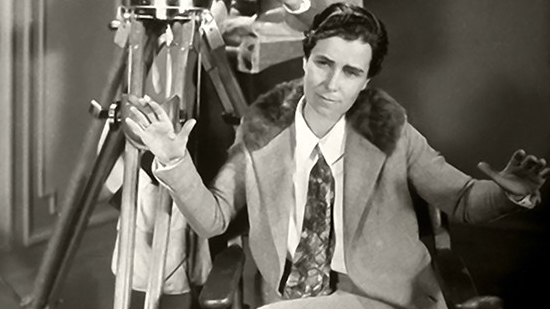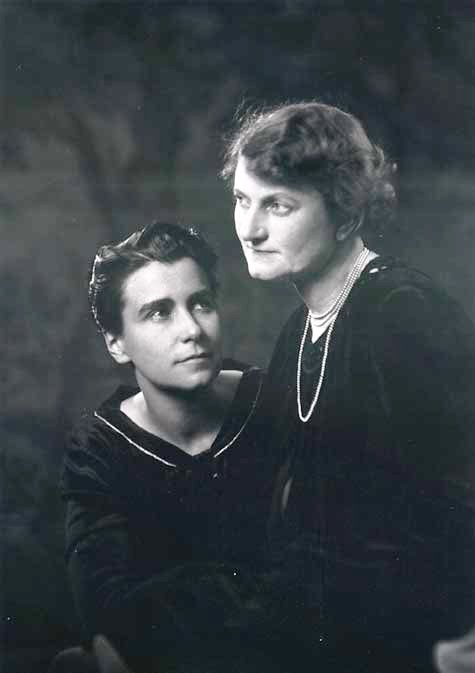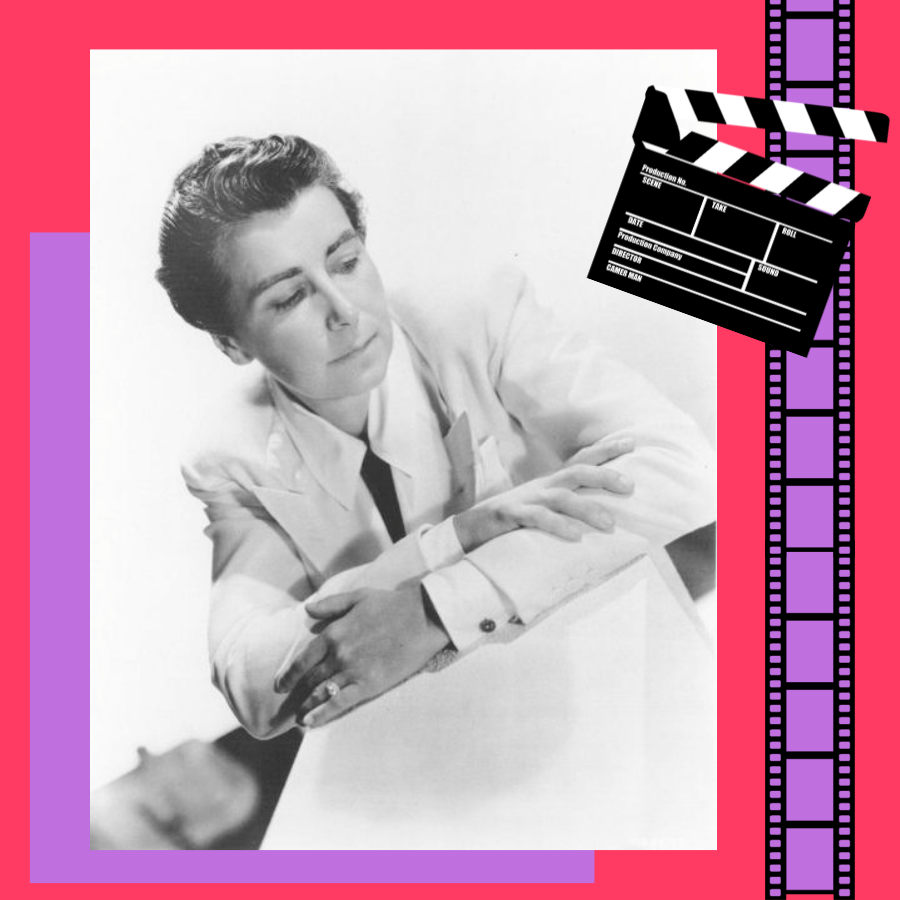Reclaiming the Canon is a series of posts that aims to bring attention to historical women who are often excluded from the narrative of their field — whether literature, music, science, or another area. Each post features a woman whose name we feel everybody should know. Readers are strongly encouraged to explore further resources, spend quality time with primary sources when possible, and self-educate — because re-claiming the canon starts with you!
Who Was Dorothy Arzner?
Dorothy Arzner was an American film director who lived from 1897-1979. She was born in San Francisco but grew up in Los Angeles, where she got her start in the film industry as a writer and editor at Paramount. Arzner was most active as a director in the 1920s and 1930s, when she was the only female director during Hollywood’s Golden Age.
Arzner was openly queer and feminist. Her films depicted women in stories that reversed societal expectations, often allowing female characters to find solidarity with each other (instead of rivalry) and exploring the repressiveness of heterosexual marriage. Many of the stories Arzner directed revolved around themes of unconventional romance.

Her Life
Hollywood fame was familiar to Arzner from a young age. Arzner’s father owned a popular restaurant in Hollywood that was frequented by movie stars of the silent era. After World War I, the film industry needed more workers and Arzner explored all the departments at Paramount. She started her career in the script department but soon became an editor. By the time she was 25, she had already edited 52 films.
Arzner became invaluable around the studio as a writer and editor, and she used this for career leverage. She threatened to leave Paramount for Columbia unless she was given a major movie to direct within two weeks. Paramount listened, and Arzner directed the silent film Fashions for Women (1927).
In 1929, Arzner became the first woman to direct a sound film. The Wild Party (1929) was also the first sound movie for silent film star Clara Bow. Bow was uncomfortable with the cumbersome microphone setup while filming, so Arzner attached a microphone to a fishing rod and held it above Bow, thus inventing the boom mic.
Arzner went on to direct 20 films for major movie studios. Her movies launched the careers of actresses like Katharine Hepburn, Rosalind Russell, and Lucille Ball. Unfortunately, the Great Depression brought a return to conservatism in American media, and Hollywood faced backlash for its “morally questionable” storytelling of the 1920s. From 1934 to 1968, the Motion Picture Production Code (known as the Hays Code) dictated self-censorship within the industry. According to ACMI curator Chelsey O’Brien: “Basically, this means we have a whole lot of married couples sleeping in separate beds for at least 20 years.” This environment led to increased sexism and homophobia in Hollywood and likely led to Arzner’s directing career ending in the early 1940s.
Arzner lived with her partner Marion Morgan, a choreographer and screenwriter, from 1930 until Morgan’s death in 1971.

Her Contribution
In the 1950s, Arzner became a consultant with Pepsi, where she made many commercials with Joan Crawford. She was also active as a teacher, and she taught cinema classes at UCLA, where Francis Ford Coppola was one of her students.
Arzner was the first woman to join the Directors Guild of America. Her documents and films are preserved at UCLA, thanks to funds raised by Jodie Foster. Though she received a star on the Hollywood Walk of Fame in 1986 (seven years after her death) and Paramount Studios named a building after her, Arzner never received any awards for her work.
In Her Words
In her early 20s, Arzner explored her career options at Paramount. She knew after watching Cecil DeMille’s work that she wanted to be a director.
“If one was going to be in this movie business, one should be a director because he was the one who told everyone else what to do. In fact, he was the ‘whole works.’”
– Dorothy Arzner in a 1974 interview
Further Resources
- Read more about Dorothy Arzner over at the Women Film Pioneers Project.
- Learn more about early Hollywood and the Hays Code.
- For a deeper dive, check out Judith Mayne’s biography Directed by Dorothy Arzner.
- Here’s a fun list of the earliest queer movies in film history.
- Want more history on women in Hollywood? Rosanne Welch edited When Women Wrote Hollywood: Essays on Female Screenwriters in the Early Film Industry.


